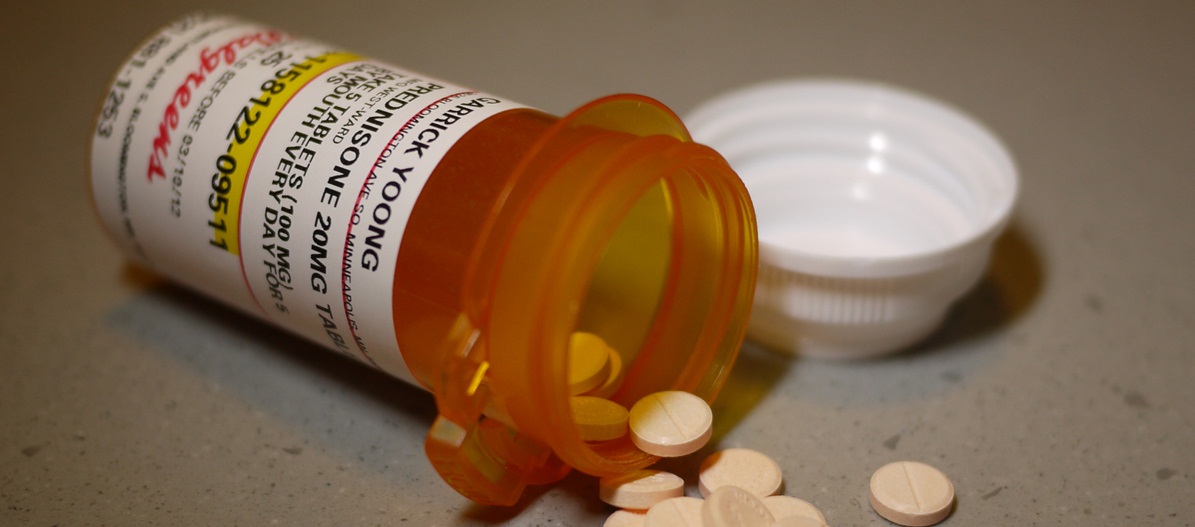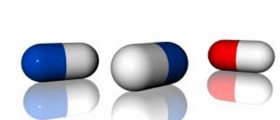Tapering is a term used for gradual and slow discontinuation of taking the steroid medicines. When one takes a steroid for a short span of time, in most cases, tapering is not necessary at all. Will the person need tapering of a certain steroid depends on the general healthiness of the person, but also on the length of time during the course of which the drug has been consumed regularly. A doctor should always survey the tapering of the specific steroid in order to reduce the number of the withdrawal symptoms to the minimum.

Prednisone
Prednisone is a corticosteroid hormone with the brand name Deltasone. It is taken to relive the symptoms of various allergies, upset stomach and swelling. Furthermore, the physicians prescribe this medicine to treat breathing disorders, arthritis, eye disorders and blood problems. Moreover, skin problems, certain types of cancer and various autoimmune diseases usually require this medicine in their treatments.
The medicine should be taken cautiously and according to the given instructions since the improper dosage of it may lead to the appearance of several side effects, such as adrenal fatigue, euphoria, Prednisone addiction and hyperglycemia. In addition to these adverse effects of Prednisone disuse, insomnia, mania, weight gain, low libido, osteoporosis and insulin resistance may occur. These are just few of numerous side effects of Prednisone.
In order to avoid them or at least to reduce their intensity and number, tapering of Prednisone is required. For those who are completely addicted to this steroid, the sudden discontinuation of Prednisone may lead to the development of a life threatening Addison’s disease, which refers to the low amounts of adrenal steroid hormones, including cortisol, which is the main hormone in the body for managing stress.
Prednisone tapering side effects
When one takes this drug for extended length of time, his/her immune system becomes gradually weak so that the body becomes prone to the development of various infections. Moreover, the effectiveness of many other medicines is significantly reduced.
The people who taper Prednisone may experience general weakness and tiredness, as well as poor appetite and loss of body weight. Sickness, vomiting, pain in the stomach and hypoglycemia, as well as hypotension, menstrual irregularities in women and elevated calcium levels are also quite possible to appear in those people who gradually reduce the dosage of Prednisone.
Widening of the intestines, pain in the joints and muscles, mental changes and fever are also among the side effects of Prednisone tapering.
Subsequent studies, with cyclosporine-based immunosuppression, attempted steroid withdrawal late posttransplantation (>3 months) in highly selected, clinically well, and immunologically low-risk recipients. Again, steroid withdrawal was associated with an increased risk of acute rejection episodes and these episodes were associated with graft dysfunction and increased graft loss. The development of new powerful immunosuppressive agents has led to renewed attempts at late prednisone withdrawal. These also have been associated with increased late rejection risk.
A more exciting innovation has been the attempts at rapid discontinuation (?7 days posttransplantation) of prednisone with the following results:
- Randomized studies have shown no significantly increased risk of acute rejection;
- Randomized and nonrandomized studies have shown no increase in late graft loss;
- Successful use in living and deceased donor recipients, primary and re–transplant recipients, adult and child recipients, white and black recipients, and low-risk and highly sensitized recipients;
- About 80% of recipients remain prednisone-free long term.
- www.nhs.uk/conditions/steroid-tablets/
- medlineplus.gov/druginfo/meds/a601102.html
- Photo courtesy of Thirteen Of Clubs by Flickr: www.flickr.com/photos/thirteenofclubs/5520512981/

















Your thoughts on this
Loading...